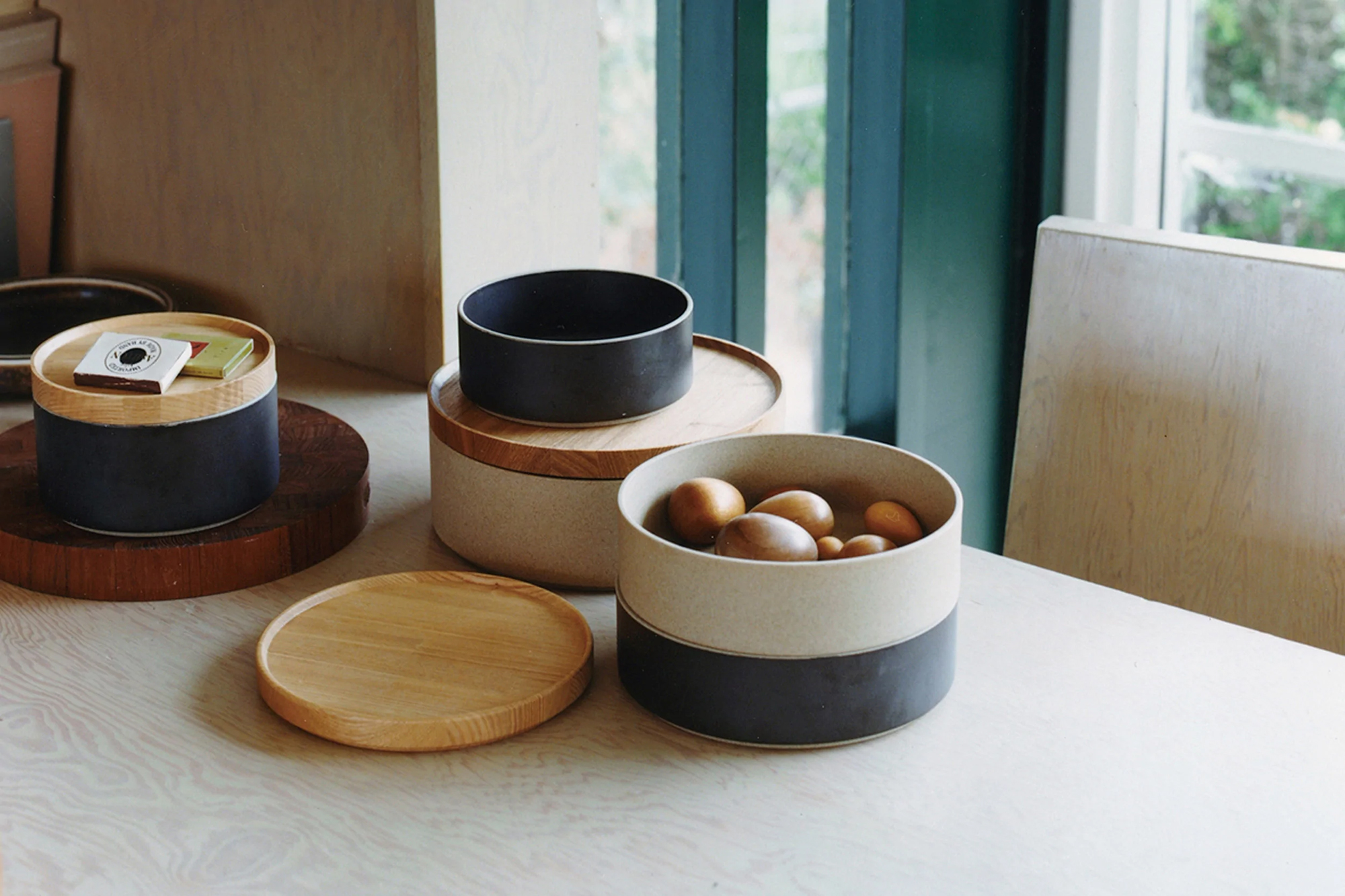A brand that brings together centuries-old crafting techniques and contemporary design.
The historic town of Hasami, in the Nagasaki Prefecture, Japan, is the birthplace of a special kind of porcelain that over centuries made its way to other areas of the country and then the rest of the world. Hasami Porcelain was founded by Takuhiro Shinomoto of Venice, California, as a brand that combines the area’s traditional porcelain crafting techniques with contemporary design. Modern style and organic qualities combine in ceramics that are as beautiful as they are long-lasting and practical.
All Hasami Porcelain products have a soft texture and a distinct feel. The collection comprises items with either matte or lustrous finishes. The company uses a proprietary blend of clay and stone to create the products, as well as traditional glazing methods. In terms of aesthetics, the objects embody the best of Japanese design. They have simple forms and soft curves as well as functional designs. All items are also conveniently stackable to save space in a cupboard and/or to make serving food easier. The modular, stacking concept is also linked to the country’s traditions. More specifically, to traditional lacquered tiered boxes. Additionally, some of these porcelain products are multifunctional and feature practical details that improve usability. For example, lids that double as plates or trays.
Handmade tableware that celebrates traditional craftsmanship.
Hasami Porcelain fully embraces the traditional way of crafting ceramics. Unlike mass-produced items, the company’s products come to life through a time-consuming, laborious process that requires both experience and highly skilled specialization. Made in Hasami, the products are crafted by not one, but several artisans, each specialized in a certain role. While some craftspeople ensure that the blend of stone and clay is just right, others mold the porcelain, glaze the objects, and fire them in the kiln. As a result, every item is one of a kind and shaped by each artisan’s contribution.
Additionally, nature plays an important part in the manufacturing process. Each season brings with it changes in temperature and humidity, which influence the way the materials or the finishes will look. For example, depending on the season, the soil can have more or less intense reddish hues. Likewise, different weather conditions can make the glaze interact differently with the raw material. The brand offers most of its products, including new arrivals, in three versions: Gloss Gray, Natural, or Black.
A timeless collection of porcelain tableware.
The brand’s collection comprises a wide range of objects, all essentials needed for daily use or special occasions. Apart from mugs and plates, the modern tableware range also includes several round bowl designs, plates, and trays. There’s also a tea set with a teapot, sugar pot, dripper, serving bottle, tumbler, and creamer, all made in Natural, Gloss Gray, or Black finishes. New arrivals also include planters in different sizes and heights. Apart from the ceramic range, Hasami Porcelain also produces solid wood or brass tableware and home accessories. Among them, triangular, oblong, and round bowl and trays made from ash or walnut wood; a brass accessory holder; a wooden tea canister; and incense sets. You can find the company’s range online and in selected stores. Photographs © Hasami Porcelain.
Can you microwave Hasami porcelain?
Porcelain products made in Hasami are safe to use in the microwave. These items don’t contain lead or cadmium and they also have a higher resistance to high temperatures. However, you should avoid exposing a Hasami porcelain product to an open flame or to intense heat, for example on a cooking stove or in an oven.
Is Hasami porcelain dishwasher safe?
Yes, the brand’s products are safe to use in a dishwasher. As each product is handmade, however, some care is required to ensure that the objects remain intact over years of use.
Is Japanese porcelain dishwasher safe?
Whether this type of porcelain is dishwasher safe depends on the kind of ceramic and finish of each product. Generally, glazed products are safe to wash in the dishwasher, but this is not always the case. For example, some unglazed objects or items with crackle glazes or more delicate finishes may require hand washing.
What is Japanese porcelain?
Japanese porcelain refers to porcelain objects made in different prefectures in Japan. Crafted from locally sourced materials, these types of porcelain vary both in material composition, manufacturing techniques, and finishes. Made from clay with glazes, these items may feature either pure white finishes or intricate decorations.
What is the difference between Hasami porcelain and other porcelain?
Hasami porcelain is deeply rooted in the area where it originated. Meaning that it features a specific type of stone and clay, which master artisans use to mold objects by hand. The company Hasami Porcelain uses traditional techniques to make its collections, and also combines them with contemporary, modular designs that enhance function.








